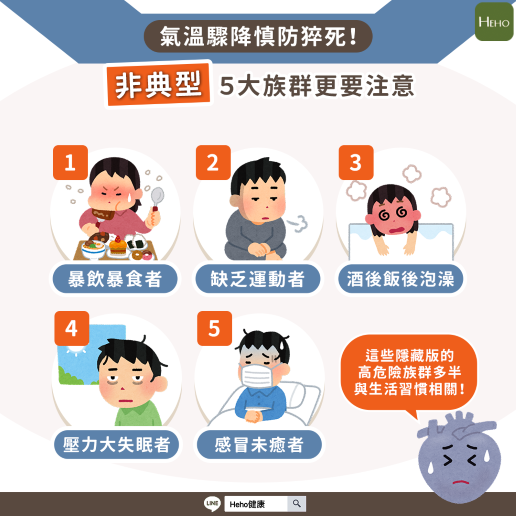Hello everyone, welcome to Focus News!
Miaoli school promotes guidance to help foreign students live comfortably in Taiwan.
Automated customs verification expands to include more applicants, and those 10 or older can apply.
Art and cultural experiences start in middle school, and beginning in 2024 cultural currency will be distributed more widely!
Feeling constantly exhausted? 5 tests to pinpoint the cause of your fatigue.
Please watch the following reports.
Miaoli Campus Campaign: Helping Foreign Students Settle Comfortably in Taiwan
To assist foreign students in integrating into life in Taiwan and safeguarding their rights, the Miaoli County Service Center of the National Immigration Agency recently collaborated with the Foreign Affairs Division of the Miaoli County Police Department to hold a promotional event at Yu Da University of Science and Technology. The event provided 413 Vietnamese students with information on residency rights and anti-fraud measures. The Miaoli County Service Center reminded students to pay attention to their residency validity and to apply for extensions through the National Immigration Agency’s online system within three months before expiration, as overstaying can result in hefty fines. Additionally, students who work part-time during their free time are advised to watch out for unlawful practices such as unfair wage deductions, restrictions on personal freedom, or withholding of identity documents. The police shared the latest fraud schemes, cautioning students against lending their bank passbooks or accounts to others to avoid becoming accomplices in fraud cases. For any difficulties encountered while living in Taiwan, students can call the "1990 Foreigners Living in Taiwan Consultation Service Hotline" for assistance.
Expanded Use of e-Gate: Applications Now Open for Ages 10 and Above
Currently, Taiwanese citizens must be at least 12 years old and 140 cm tall to apply for e-Gate. To expand access and allow more citizens to enjoy the convenience of e-Gate, the National Immigration Agency announced that the minimum age requirement will be lowered to 10 years old, and the height requirement will be reduced from 140 cm to 120 cm. This new policy is set to take effect on January 1 of next year. Additionally, under the revised Immigration and Nationality Act, non-registered nationals (those without household registration) will be treated the same as registered nationals. As long as they are at least 10 years old, 120 cm tall, and possess a valid Taiwanese electronic passport, they can also apply for e-Gate. The next-generation e-Gate system features an integrated dual function for registration and clearance at the gate. Users can register their facial images at the gate and have the option to add fingerprint data, enabling simultaneous registration and clearance. This advanced technology offers citizens a fast and seamless clearance experience.
Cultural Experiences Begin in Junior High: Cultural Vouchers Expanded Starting Year 114!
Since 2023 (Year 112), the Ministry of Culture has issued cultural vouchers, which were normalized in 2024 (Year 113) for individuals aged 16-22, with each person receiving 1,200 points. To further foster cultural appreciation from a younger age, starting in 2025 (Year 114), the ministry will maintain the existing program while launching a pilot project for ages 13-15, providing 600 points per person. This means that junior high school students will also be able to use cultural vouchers to engage in arts and cultural experiences. The Ministry of Culture announced that cultural vouchers for Year 114 will be distributed starting January 1 of next year. These vouchers can be used for activities such as watching Taiwanese movies, attending performances, buying books, visiting museums, participating in DIY workshops, or joining cultural experience trips. The vouchers will be valid until December 31, 2025. This initiative aims to nurture the next generation with greater creativity, humanistic care, cultural literacy, and self-identity. The Ministry of Culture also plans to introduce additional programs to encourage family participation and group activities for teenagers, attracting more people to connect with arts and culture.
Feeling Constantly Exhausted? 5 Tests to Identify the Culprits Behind Fatigue
Many people often feel fatigued without knowing the root cause. Doctors typically begin with five tests to systematically rule out possible physiological factors. Blood cell analysis is used to check for infections, inflammation, or anemia. High white blood cell counts may indicate inflammation, while low red blood cell counts suggest anemia, both of which can cause fatigue. Liver function tests can identify whether the liver is inflamed or functioning poorly, as inadequate liver function can affect the body’s energy supply, leading to exhaustion. Blood sugar tests are especially important for diabetic patients, as poorly managed blood sugar levels often result in fatigue. Thyroid function tests help detect overactive or underactive thyroid conditions. Hyperthyroidism accelerates metabolism, keeping the body in a prolonged state of hyperactivity and fatigue, while hypothyroidism slows metabolism, causing lethargy and low energy. Lastly, kidney dysfunction may lead to toxin buildup in the body, which can contribute to fatigue. Identifying the true cause of fatigue is essential for improving quality of life and overall well-being.






